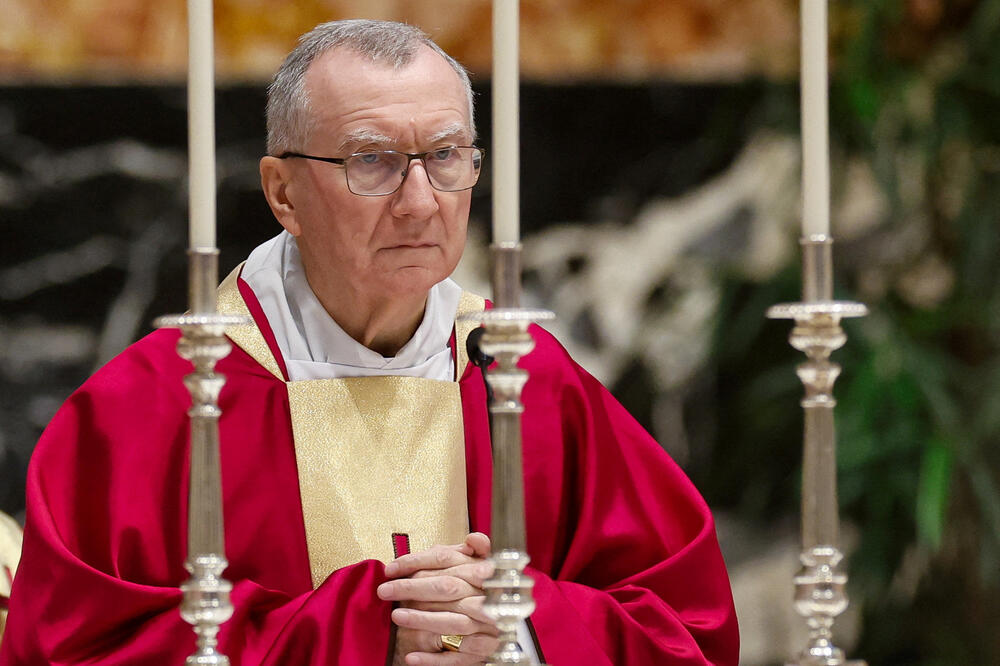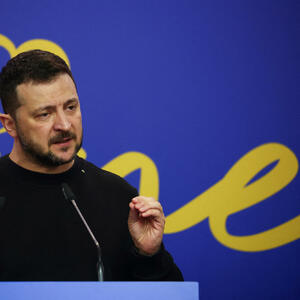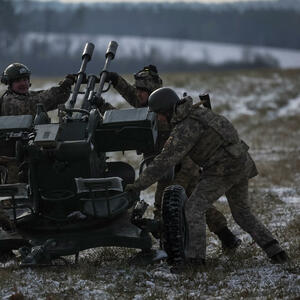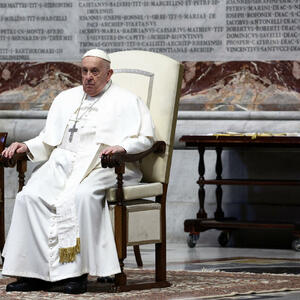The first condition for any negotiations to end the war in Ukraine is for Russia to stop its aggression, a second Vatican official said.
The Ukrainian Ministry of Foreign Affairs invited the papal nuncio for a meeting to express "disappointment" over the statements of the head of the Roman Catholic Church that Ukraine should "show the courage of the white flag" and start negotiations with Russia to end the two-year war, Reuters reports.
Cardinal Pietro Parolin, Secretary of State of the Holy See, told the "Courier of Sera" newspaper that the Vatican is in favor of a ceasefire and that "the aggressor is the one who should stop shooting first".
The statement of Pope Francis from the interview published on Saturday caused different reactions from NATO and Moscow.
The Kremlin said that the Pope's call to stop the war was "completely understandable", and the head of NATO said that now is not the time to talk about "surrender".
Trying to defuse the situation and clarify the pope's comments, Parolin said the pope wanted to "create the conditions for a diplomatic solution in search of a fair and lasting peace."
To achieve this, it is "obvious" that both sides must sit down at the negotiating table and that the first condition is "the cessation of aggression," Parolin said.
Emphasizing that he considers Russia an aggressor, Parolin added that "the war against Ukraine is not the result of a natural disaster", but of human choice.
"The same human will that caused that tragedy has the ability and responsibility to stop it and pave the way for a diplomatic solution," said Parolin.
On Sunday, Ukrainian President Volodymyr Zelensky dismissed the pope's comments, although he did not mention him directly.
He said distant religious figures should not get involved in "virtual mediation between someone who wants to live and someone who wants to destroy."
Zelenskiy's peace plan calls for the withdrawal of Russian troops and the return to Ukraine's 1991 borders, Reuters reminds.
Moscow states that it cannot hold any talks under such conditions.
Ukrainian Foreign Minister Dmytro Kuleba said on Sunday that Kiev will never capitulate and that a strong person in any dispute "stands on the side of good, not trying to put them on the same level and call it 'negotiations'".
"Our flag is yellow and blue," Kuleba wrote, referring to Ukraine's national flag.
"This is the flag with which we live, die and win. We will never raise other flags," emphasized Kuleba.
NATO Secretary General Jens Stoltenberg said on Monday that he does not agree with the statements of Pope Francis, but that Kiev needs military assistance.
"If we want a negotiated, long-term peace solution, the way to achieve it is by providing military support to Ukraine," Stoltenberg said.
Bonus video:








